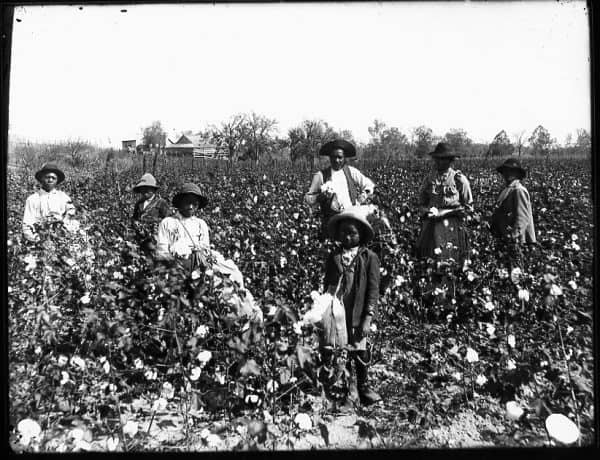Forgotten Black Voices
Gedaliah Braun, American Renaissance, September-October 1993
American Renaissance often discusses the various black claims for reparations because of slavery. But readers may be interested to know that during the Depression someone had the idea of sending people to the South to interview the last remaining blacks who had been slaves — all then in their 80s and 90s. Someone named George P. Rawick has compiled these narratives into a 19-volume collection called The American Slave: A Composite Autobiography, which is published by Greenwood Press.

Several books have been based on these interviews, and a few years ago I read one called Before Freedom: 48 Oral Histories of Former North and South Carolina Slaves. It was edited by Belinda Hurmence, and published by Mentor (Penguin) in 1990. I recall that of these 48 interviews only two could be called hostile to former masters, slavery, or whites. Some were more or less neutral, but certainly the largest number expressed a positive attitude toward former owners and to slavery. Here are some excerpts:
Patsy Mitchner, age 84 when interviewed on July 2, 1937:
Before two years had passed after the surrender, there was two out of every three slaves who wished they was back with their marsters. The marsters’ kindness to the nigger after the war is the cause of the nigger having things today. There was a lot of love between marster and slave, and there is few of us that don’t love the white folks today. . .
“Slavery was better for us than things is now, in some cases. Niggers then didn’t have no responsibility; just work, obey, and eat.”
L. Betty Cofer, age 81:
The rest of the family was all fine folks and good to me, but I loved Miss Ella better ’n anyone or anything else in the world. She was the best friend I ever had. If I ever wanted for anything, I just asked her and she give it to me or got it for me somehow. . . I done lived to see three generations of my white folks come and go and they’re the finest folks on earth.
Adeline Johnson, age 93:
That was a happy time, with happy days. . .nbsp;. I’ll be satisfied to see my Savior that my old marster worshiped and my husband preach about. I wants to be in heaven with all my white folks, just to wait on them and love them, and serve them, sorta like I did in slavery time. That will be enough heaven for Adeline.
Mary Anderson, age 86:
I think slavery was a mighty good thing for Mother, Father, me and the other members of the family, and I cannot say anything but good for my old marster and missus, but I can only speak for those whose conditions I have known during slavery and since. For myself and them, I will say again, slavery was a mighty good thing.
Simuel Riddick, age 95:
My white folks were fine people. . .nbsp;. I haven’t anything to say against slavery. My old folks put my clothes on me when I was a boy. They gave me shoes and stockings and put them on me when I was a little boy. I loved them, and I can’t go against them in anything. There were things I did not like about slavery on some plantations, whupping and selling parents and children from each other, but I haven’t much to say. I was treated good.
Sylvia Cannon, age 85:
Things sure better long time ago then they be now. I know it. Colored people never had no debt to pay in slavery time. Never hear tell about no colored people been put in jail before freedom. Had more to eat and more to wear then, and had good clothes all the time ’cause white folks furnish everything, everything. Had plenty peas, rice, hog meat, rabbit, fish, and such as that.
As I reflect on these interviews, they remind me of what I find now among non-Westernized Africans. They like and respect whites because, generally speaking, whites treat them better than their fellow blacks do.
In the introduction to this collection, the editor is at pains to explain all of these favorable statements about whites and slavery. The best she can do is to point out that these interviews were taken in the midst of the Depression and people must have looked back nostalgically to the past when blacks had food, clothing, housing, etc.
Even if this could explain the fond memories of the condition of slavery, it does not explain fond memories of white owners. What is especially surprising is that after sifting through thousands of interviews, and with the clearly expressed liberal bias of the editor, there is still such a preponderance of positive expressions about whites and slavery. One is bound to conclude that this was at least a very common reaction if not perhaps even typical.















